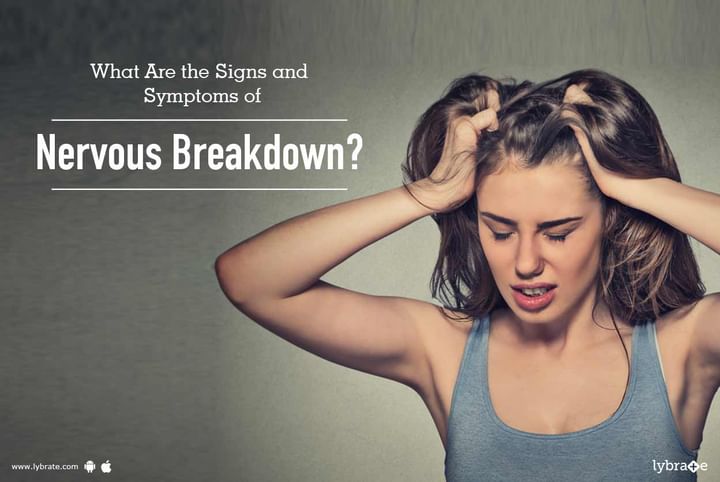Get the App
For Doctors
Login/Sign-up
Last Updated: Jan 10, 2023
BookMark
Report
What are the Signs and Symptoms of Nervous Breakdown?
Nervous Breakdown is not a medical term. It is connected to health problems associated with depression and anxiety. It often results from extreme stress and need medical help to overcome it. Although there are physical and emotional symptoms of this state of being, people often miss it. Here is a list of some common signs and symptoms related to nervous breakdown:
- It is hard to concentrate: It is often seen that a person finds it hard to concentrate when he is on the verge of mental breakdown. While a little stress helps in better functioning of the memory, chronic stress can prove to be lethal for the human mind and body. According to a study conducted by the University of Maryland Medical Center, it is found that too much stress results in the secretion of a hormone called cortisol which deteriorates the memory.
- Food becomes your best friend: An increased level of stress makes the body release certain hormones such as adrenaline for a flight response. When this hormone wears off, cortisol asks the body to replenish energy from food. This hormonal reaction results in emotional eating. As a result of stress, certain high sugar items such as ice-cream and chocolate give a good feeling to the body. According to a study conducted by the American Psychological Association it was found that 40 percent out of 3000 individual seek pleasure in high fat high sugar items.
- An upset stomach: Often before nervous breakdown, many people report symptoms related to IBS. A patient might also go through certain other symptoms such as stomach aches, abdominal pain and diarrhea. These indicators are related to overwhelming stress more often than not. According to a recent study conducted by the Anxiety and Depression Association of America, it is found that more than half the people suffering from IBS have anxiety or depression related disorder.
- Slouching becomes your favorite activity: Slouching is a major indicator of stress. A study conducted by the San Francisco State University in 2012 revealed that slouching drains more energy than skipping. Poor posture and depression is a common phenomenon in people suffering from anxiety and stress related disorder. If this is occurring way too frequently, it is time to consult a doctor and get professional help.
- A hyperactive nose: People with hypertension, anxiety, depression and stress often find themselves with a hyperactive sense of smell. A study conducted by the University of Wisconsin revealed that when a person is exposed to disturbing images of crashes or accident, he is often found to have a distorted sense of smell. Even neutral smells can be mistaken as foul ones by patients suffering from anxiety. If this sounds familiar, it is time to visit a doctor.



+1.svg)
